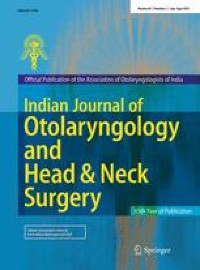Abstract
The primary goal of the study was to assess the progress achieved across different implant age groups (0–2 years, 2.1–4 years and 4.1–6 years) using a comprehensive test battery approach targeting areas such as Audition, Speech Perception, Speech Intelligibility and Speech-Language.This cross-sectional study evaluated the outcomes of 40 children who underwent cochlear implantation at Sri Ramachandra Medical Centre, Chennai. A battery of tests included aided audiogram, Categorical Auditory Performance, Meaningful Auditory Integration Scale; Picture speech identification test in Tamil; Speech Intelligibility Rating Scale and Communication Developmental Eclectic Approach to Language Learning (COMDEALL) were administered to evaluate their auditory, speech perception, speech intelligibility and speech and language skills, respectively. The results of the study suggested that children implanted between 0 and 2 years of age demonstrated better performance in all tasks including audition, speech perception and intelligibility as well as speech and language when compared to the other two older groups. Children implanted between 0 and 2 years reached target milestones early in life similar to their hearing peers. However, children between (2.1– 4 years) also performed well and results indicated that they could catch up with intensive training. The present study reestablished the findings that early implantation (0–2 years) facilitates optimal progress when compared to implantation at later ages within the age range of 0–6 years. It also facilitates parent counseling regarding the realistic expectations with reference to different ages of implantation



Δεν υπάρχουν σχόλια:
Δημοσίευση σχολίου
Medicine by Alexandros G. Sfakianakis,Anapafseos 5 Agios Nikolaos 72100 Crete Greece,00302841026182,00306932607174,alsfakia@gmail.com,